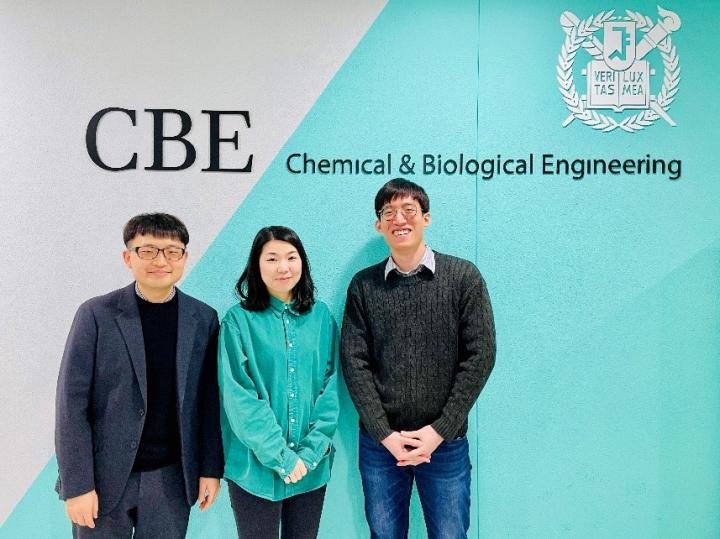
Credit: Seoul National University
On Feb 5th, Seoul National University, College of Engineering (Dean Kookheon Char) announced that Professor Sang Woo Seo’s research team (Dr. Jina Yang and Mr. Yong Hee Han (graduate student)) at School of Chemical and Biological Engineering has developed a synthetic protein quality control system to enhance full-length translation in bacteria. This technology is expected to increase the efficiency of the production of biopharmaceuticals, industrial enzymes, and bio-based chemicals.
Recombinant proteins are used in various industrial fields from protein drugs such as insulin to industrial proteins such as laundry detergents. Since proteins can perform their functions only with full-length and proper 3D structure, recombinant protein production using microbial cell factories requires several protein purification steps. To enhance the yield of the production process, strain improvement techniques have been developed to increase the target protein expression level or to supplement the insufficient amino acids in a cell. However, since transcription and translation steps occur in the same place at the same time in bacteria, truncated mRNA can be served as a template for translation by ribosome resulting in the production of incomplete polypeptides.
The Protein Quality Control system (ProQC), developed by Prof. Seo’s research team, is a synthetic gene expression cassette that allows ribosomes to only use intact mRNA as a template. In eukaryotic expression systems, the translation process is initiated after the transcription process is completed. By mimicking this, when the transcription process is completed, the cis-trigger element at the 3’end of mRNA can hybridize with Toehold switch at the 5’end and expose ribosome binding sites for the translation. Also, the mRNA becomes circular ensuring efficient re-initiation of ribosomes.
By applying the ProQC system to various protein expressions, the bacterial cells synthesized more full-length proteins (up to 250%). In addition, when the enzymes in the biochemical synthesis pathways were expressed under the control of the ProQC system, the target metabolite production levels were also increased more than two times.
Professor Sang Woo Seo said, “The gene expression system developed in this study allows bacteria to selectively translate intact mRNA to synthesize high-quality proteins by themselves. Also, as this technology is applied to a new level of regulation, there will be synergies when used with existing recombinant protein production strategies. It will dramatically improve the efficiency of the microbial cell factory-based recombinant protein and biochemical production.”
###
The study, which was published online in Nature Chemical Biology on February 5th (KST), was conducted with the support from the Bio & Medical Technology Development Program, C1 Gas Refinery Program, and the Basic Research Laboratory Project through the National Research Foundation (NRF) of Korea, funded by the Ministry of Science and ICT (MSIT).
Information
Title: Synthetic protein quality control to enhance full-length translation in bacteria
Journal: Nature Chemical Biology (2021)
DOI: 10.1038/s41589-021-00736-3
URL: https:/
First authors: Jina Yang (SNU Researcher), Yong Hee Han (SNU graduate student)
Corresponding author: Sang Woo Seo (SNU Professor)
Media Contact
Sang Woo Seo
[email protected]
Original Source
http://www.
Related Journal Article
http://dx.




